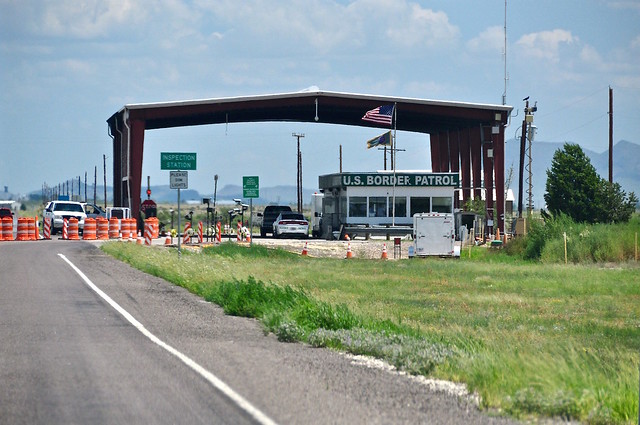Migration across the U.S.-Mexico border is a highly contested and politicized topic in the United States today, and much of this discussion revolves around white Americans long-standing but erroneous fears of undocumented immigrants crossing the southern border. However, a recent study featured in an op-ed for the Chicago Tribune finds that Latinos who legally cross often experience discrimination at border checkpoints.
The study’s authors, Alexander Updegrove, Joshua Shadwick, Eryn O’Neal, and Alex Piquero, draw from surveys at two public Texas universities about student experiences of legal crossings across the U.S.-Mexico border. Nearly one-third of the students described experiences of discrimination by border patrol agents due to their darker skin complexion, clothing, use of a Mexican instead of U.S. passport, and for having an accent. All of these students described experiencing either additional screening, extended questioning, degrading comments, or physical searches.
For example, a 19-year-old Latino respondent Robert’ reports being mocked by a Customs and Border Protection (CBP) officer for his health condition, stating that the officers
“[made] fun of my heart pulse, because I have a pretty fast pulse — most of the time my hands are shaking. So when I told him about my health issue, he started to laugh and called other officers to come and see.”
One of the study’s co-authors, criminologist Alex Piquero, explains that when people are treated poorly by custom officials or other law enforcement, it causes trust in the entire institution to wither away:
“People talk, they share vicarious experiences and then you have this folklore that develops; … if you create a lived experience that law enforcement is not fair, not on their side and not there to help and protect certain people, then these same people are likelier to not report crime and not go to law enforcement for help.”
According to Piquero, trust and mutual respect must be present between safety officials and the public in order to ensure everyone’s safety.


Comments 1
Joe E. Taylor — April 20, 2023
It's important to remember that it's not the fault of the person being discriminated against, but rather the fault of the system that allows such behavior. One way to address this issue is for customs and border protection to implement training programs to educate their officers on how to treat all travelers with respect and dignity. Well, I would also like to read https://easyreadernews.com/what-are-the-basic-steps-of-writing-an-argumentative-essay/ article as writing an argumentative essay is sometime gets really tricky.